The Color Purple is a 1985 American coming-of-age period drama film directed by Steven Spielberg with a screenplay by Menno Meyjes, based on the Pulitzer Prize-winning 1982 novel of the same name by Alice Walker. It was Spielberg's eighth film as a director, and was a change from the summer blockbusters for which he had become famous. The film was also the first feature-length film directed by Spielberg for which John Williams did not compose the music. The film stars Whoopi Goldberg, Danny Glover, Desreta Jackson, Margaret Avery, Oprah Winfrey (in her film debut), Rae Dawn Chong, Willard Pugh, and Adolph Caesar in one of his final film roles.
| The Color Purple | |
|---|---|
Theatrical release poster by John Alvin | |
| Directed by | Steven Spielberg |
| Produced by |
|
| Screenplay by | Menno Meyjes |
| Based on | The Color Purple by Alice Walker |
| Starring |
|
| Music by | Quincy Jones |
| Cinematography | Allen Daviau |
| Edited by | Michael Kahn |
Production company | Amblin Entertainment |
| Distributed by | Warner Bros. Pictures |
Release date |
|
Running time | 153 minutes |
| Country | United States |
| Language | English |
| Budget | $15 million |
| Box office | $142 million |
Filmed in Anson and Union counties in North Carolina, the film tells the story of a young African American girl named Celie Harris and shows the problems African American women faced during the early 20th century, including domestic violence, incest, pedophilia, poverty, racism, and sexism. Celie is transformed as she finds her self-worth through the help of two strong female companions.
The film was a box office success, raising $142 million from a budget of $15 million. The film received positive reviews from critics, receiving praise for its acting, direction, screenplay, score, and production merits; but it was also criticized by some critics for being "over-sentimental" and "stereotypical." The film was nominated for eleven Academy Awards, including Best Picture, without winning any; it also received four Golden Globe Award nominations, with Whoopi Goldberg winning Best Actress in a Drama. Steven Spielberg didn't receive an Academy Award nomination for his directing, but did receive a Directors Guild of America Award for Outstanding Directorial Achievement, and a Golden Globe nomination. The film was later included in Roger Ebert's book series The Great Movies.
Screenplay
Celie Harris is an African-American teenager in early 20th century rural Georgia who had had two children by her abusive father, both of whom have been taken from her. She is given away to widower Albert Johnson, who already has three children, as a wife and is soon abused. Celie's sister Nettie, whom she has vowed to protect, escapes their abusive father and seeks shelter at the Johnson estate. Albert immediately takes a romantic interest in Nettie and lets her stay, where she and Celie promise to write each other should they ever be separated. Nettie teaches Celie to read and the two are happy together, until Albert sexually assaults Nettie while on her way to school. She successfully fights him off, and is forcibly removed from the property.
Years later, Celie is now a meek adult who has avoided standing up to Johnson's continued abuse. His eldest son Harpo marries his girlfriend Sofia, a strong-willed, boisterous character, and Celie is shocked to find her running a matriarchal household. On Albert's advice, Harpo attempts to overpower and strike Sofia in an attempt to better control her. After he fails, he asks Celie what to do. Confronted with her own inability to stand up to abuse, she also advises Harpo to start beating Sofia. Sofia forcefully retaliates, and confronts Celie about what she told Harpo, threatening to kill him if he beats her again and telling Celie to do likewise to Albert. Sofia eventually leaves Harpo, taking her children with her.
Johnson and Harpo bring home Shug Avery, a showgirl and the former's long-time mistress, as she suffers from an unknown illness. Celie, who has slowly developed a fondness for Shug through a photograph sent to Johnson, does not object to Shug's presence, and is in awe of Shug's strong-will and ability to stand up to Albert. She goes above and beyond in nursing Shug back to health, and Shug in turn takes a liking to her, writing and performing a song about her at Harpo's newly-opened bar. Obsessed with Shug, Celie follows her around and learns she is in ill standing with the reverend, who is angry about Shug’s wild lifestyle. Celie decides to follow Shug to Memphis, but gets caught by Albert while she’s frantically packing her things.
Sofia is imprisoned and separated from her children after being instigated into a violent confrontation that results in a riot. Years pass, and she is released from prison only to be immediately ordered by the judge to become a maid to the Mayor's wife, Ms. Millie. Having not seen her children in eight years, Sofia is allotted Christmas to be with her family, and Ms. Millie tries to drive her, but panics and turns around after encountering a group of Sofia's friends who are only trying to help her.
Shug returns to the Johnson household with her new husband Grady, expecting to receive a recording contract. Shug gives Celie a letter from Nettie, who tells her that she's working for a couple that has adopted Celie's children. Celie and Shug realize that Johnson has been hiding Nettie's letters from Celie; while he and Grady are out drinking, the two search the house and find a hidden compartment under the floorboards filled with dozens and dozens of letters. Engrossed in reading Nettie’s letters, Celie does not hear Albert’s calls to shave him and he beats her. Celie considers killing Albert with the straight-razor, but Shug intervenes and stops her. At a family gathering including the Johnsons, the Averys, and Sofia's family, Celie finally speaks up against Albert, to Shug and Sofia’s delight, who breaks her silence and finds her old fighting spirit, which prompts Harpo’s new wife to stand up for herself as well. Johnson continues to berate Celie, who then threatens and curses him. Shug and Grady drive away, taking Celie with them.
Years later, Celie owns and operates a tailor shop, Johnson is old and alone, and Harpo has made amends with Sofia; the two now running the bar together. Celie's father passes away, and she learns from Nettie that he wasn't their biological father, who in-turn left the Harris property to Celie and Nettie. After not having performed in years Shug starts singing at Harpo’s bar again. Johnson receives a letter from Nettie addressed to Celie, takes money from his secret stash and helps Nettie and her employers, and their adoptive father return to the USA, where they finally reunite while Johnson watches from a distance.
- Whoopi Goldberg as Celie Harris Johnson
- Desreta Jackson as young Celie
- Danny Glover as Albert Johnson ("Mister")
- Oprah Winfrey as Sofia Johnson
- Margaret Avery as Shug Avery
- Táta Vega as Shug's singing voice
- Akosua Busia as Nettie Harris
- Adolph Caesar as Old Mister (Albert's Father)
- Willard Pugh as Harpo Johnson
- Rae Dawn Chong as Squeak
- Laurence Fishburne as Swain
- Carl Anderson as Reverend Samuel
- Grand Bush as Randy
- Dana Ivey as Miss Millie
- Bennet Guillory as Grady
- James Tillis as Henry "Buster" Broadnax
- Leonard Jackson as Alphonso "Pa" Harris
- Gayle King (uncredited) as Churchgoer
The film premiered on December 20, 1985, and went on general release on February 7, 1986. The Color Purple was shown at the 1986 Cannes Film Festival as a non-competing title.
Box office
The Color Purple was a success at the box office, staying in U.S. theaters for 21 weeks, and grossing over $142 million worldwide. In terms of box office income, it ranked as the #1 rated PG-13 film released in 1985, and #4 overall.
Critical response
Alice Walker discusses the film
from the BBC programme Desert Island Discs, 19 May 2013 | |
Problems playing this file? See media help. | |
The film received positive reviews from critics, receiving praise for its acting, direction, screenplay, score, and production merits, but was criticized by some for being "over-sentimental" and "stereotypical." Rotten Tomatoes gives the film a score of 85% based on reviews from 27 critics, with an average score of 6.9/10. The website's critical consensus states: "A sentimental tale that reveals great emotional truths in American history." On Metacritic, which assigns a normalized rating to reviews, the film has a weighted average score of 78 out of 100, based on 8 critics, indicating "generally favorable reviews".
Roger Ebert of the Chicago Sun-Times awarded the film four stars, calling it "the year's best film." He also praised Whoopi Goldberg, calling her role "one of the most amazing debut performances in movie history" and predicting she would win the Academy Award for Best Actress. (She was nominated but did not win.) Ebert wrote of The Color Purple:
The world of Celie and the others is created so forcibly in this movie that their corner of the South becomes one of those movie places — like Oz, like Tara, like Casablanca — that lay claim to their own geography in our imaginations. The affirmation at the end of the film is so joyous that this is one of the few movies in a long time that inspires tears of happiness, and earns them.
Ebert's long-time television collaborator, Gene Siskel of the Chicago Tribune, praised the film as "triumphantly emotional and brave," calling it Spielberg's "successful attempt to enlarge his reputation as a director of youthful entertainments." Siskel wrote that The Color Purple was "a plea for respect for black women." Although acknowledging that the film was a period drama, he praised its "... incredibly strong stand against the way black men treat black women. Cruel is too kind a word to describe their behavior. The principal black men in The Color Purple use their women — both wives and daughters — as sexual chattel."
New York Times film critic Janet Maslin noted the film's divergence from Walker's book, but made the case that this shift works:
Mr. Spielberg has looked on the sunny side of Miss Walker's novel, fashioning a grand, multi-hanky entertainment that is as pretty and lavish as the book is plain. If the book is set in the harsh, impoverished atmosphere of rural Georgia, the movie unfolds in a cozy, comfortable, flower-filled wonderland. ... Some parts of it are rapturous and stirring, others hugely improbable, and the film moves unpredictably from one mode to another. From another director, this might be fatally confusing, but Mr. Spielberg's showmanship is still with him. Although the combination of his sensibilities and Miss Walker's amounts to a colossal mismatch, Mr. Spielberg's Color Purple manages to have momentum, warmth and staying power all the same.
Variety found the film over-sentimental, writing, "there are some great scenes and great performances in The Color Purple, but it is not a great film. Steven Spielberg's turn at 'serious' film-making is marred in more than one place by overblown production that threatens to drown in its own emotions."
In addition, some critics alleged that the movie stereotyped black people in general and black men in particular, pointing to the fact that Spielberg, a Jew, had directed a predominantly Afri
Watch movie The Color Purple 1985 Film online on Amazon
Watch movie The Color Purple 1985 Film online
Watch The Movie On PrimeNayee Padosan (2003) Full HD Movie Download
.jpg)
The Great Gambler Full HD Movie Download

Paapi Devta Full HD Movie Download

Paap Ki Duniya Full HD Movie Download

Chunauti Full HD Movie Download

Chhota Sa Ghar Full HD Movie Download
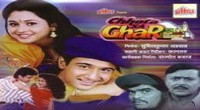
Yuga Full HD Movie Download

Appula Apparao Full HD Movie Download
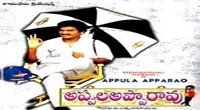
Tallidandrulu Full HD Movie Download

The Time Travelers Wife Full HD Movie Download

The Green Mile Full HD Movie Download
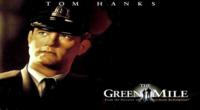
Bat Hunter Full HD Movie Download

Pretty Little Devils Full HD Movie Download

Steamboat Bill Jr. Full HD Movie Download
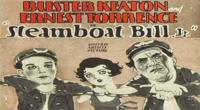
Thaskara Lahala Full HD Movie Download

Varavelpu Full HD Movie Download

Edutha Sabatham Mudipen Full HD Movie Download

Gharana Alludu Full HD Movie Download

Lakshadhikari Full HD Movie Download

Debbaku Tha Dongala Mutha Full HD Movie Download
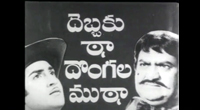
Aaja Nachle Full HD Movie Download

Download latest Movie from bollywood
- 1> baaghi 3
- 2> THE SKY IS PINK MOVIE FULL STORY AND REVIEW
- 3> Luka Chuppi
- 4> TO ALL THE BOYS I’VE LOVED BEFORE
- 5> Kabir Singh
- 6> Street Dancer 3D
- 7> Simmba
- 8> Gone Girl
- 9> The Girl Who Lived
- 10> Ludo
- 11> DILWALE DULHANIA LE JAYENGE
- 12> GUILTY
- 13> The Godfather
- 14> Adventures of Rusty
- 15> Sooryavanshi
- 16> Satyameva Jayate 2
- 17> Thappad
- 18> Bhool Bhulaiyaa 2
- 19> KGFChapter 2
- 20> Mardaani 2
- 21> Pinjar
- 22> Shivaji maharaj
- 23> Ek Villian 2
- 24> Hungama 2
- 25> Divergent
- 26> Mumbai Saga
- 27> The Internship
- 28> HIT (telugu)
- 29> Panga
- 30> The perfect date
- 31> 16 December
- 32> Gopala Gopala (Telugu)
- 33> Brahmastra
- 34> Gangubai Kathiawadi
- 35> Manmadhudu
- 36> Nenu local
- 37> Mahanati
- 38> Shatamanam bavathi
- 39> Lagaan
- 40> After
- 41> MOM
- 42> Shamshera
- 43> Raguvaran BTech
- 44> Khakee
- 45> The villain
- 46> OM
- 47> Mr. perfect
- 48> Bueatifull mind
- 49> Hichki
- 50> Gabbar Singh
- 51> Jogi
- 52> Before Sunrise
- 53> Before Sunset
- 54> Before Midnight
- 55> The Big Bull
- 56> Top Gun: Maverick
- 57> The Purge
- 58> The Sky is Pink
- 59> Laxmmi Bomb
- 60> Sadak 2
- 61> Sufna
- 62> Prithviraj
- 63> PK
- 64> Coolie No 1(2020)
- 65> Black Widow
- 66> Dear Zindagi
- 67> Dil Bechara
- 68> PHIR HERA PHERI
- 69> WAR
- 70> Dostana
- 71> RRR: Roudram Ranam Rudhiram
- 72> Maidan
- 73> Dabbang 3
- 74> Chhalaang
- 75> life as we know it
- 76> SherShaah
- 77> Sandeep Aur Pinky Faraar
- 78> Event Horizon
- 79> 83
- 80> Radhe: Your Most Wanted Bhai
- 81> Gunjan Saxena: The Kargil Girl
- 82> Mr India
- 83> Vivah
- 84> Anokha Bandhan
- 85> Ghost
- 86> Bhoot: Part One - The Haunted Ship
- 87> Haseen Dilruba
- 88> Laal Singh Chaddha
- 89> Qismat
- 90> Rajput
- 91> Drive
- 92> Dil Chahta Hai
- 93> Dil Ki Baazi
- 94> Dil Ka Rishta
- 95> Teesri Manzil
- 96> Dil
- 97> Love Aaj Kal
- 98> Khaali Peeli
- 99> Bunty Aur Babli 2
- 100> Atrangi Re
- 101> Gulabo Sitabo
- 102> Jodi
- 103> Suraj Pe Mangal Bhari
- 104> Deewana
- 105> Attack
- 106> Sardar Udham Singh
- 107> Toofan
- 108> THE LOVEBIRDS
- 109> Jersey
- 110> Ginny Weds Sunny
- 111> Thalaivi
- 112> Shiddat
- 113> Angels vs Zombies
- 114> Koi Mil Gya
- 115> Thank God
- 116> Bhuj: The Pride of India
- 117> Hum Aapke Hain Kaun
- 118> The Platform
- 119> Bird Box
- 120> Roohi Afzana
- 121> Torbaaz
- 122> Nikamma
- 123> World War Z
- 124> Extraction
- 125> Train to Busan
- 126> Life of Pi
- 127> SHAADI MEIN JROOR AANA
- 128> Himmat Aur Mehnat
- 129> To All The Boys: P.S. I Still Love You
- 130> Mimi
- 131> Good Newwz
- 132> Shubh Mangal Zyada Saavdhan
- 133> Raabta
- 134> Harry Potter and the Philosopher's Stone
- 135> Harry Potter and the Chamber of Secrets
- 136> Chhapaak
- 137> War of the Worlds
- 138> Harry Potter and the Prisoner of Azkaban
- 139> Harry Potter and the Goblet of Fire
- 140> MURDER MYSTERY
- 141> Shakuntala Devi
- 142> Bachchan Pandey
- 143> Jayeshbhai Jordar
- 144> Sheer Qorma
- 145> Saina
- 146> 'O' Pushpa I hate tears
- 147> Kedarnath
- 148> MS Dhoni The Untold Story
- 149> Chhichhore
- 150> Badhaai Ho
- 151> Unstoppable
- 152> Oz the Great And Powerful
- 153> The Girl on the Train
- 154> Haathi Mere Saathi 2020
- 155> The Conjuring: The Devil Made Me Do It
- 156> Gandhi Se Pehle Gandhi
- 157> The Song of Scorpions
- 158> Srimanthudu
- 159> Hello Guru Prema Kosame
- 160> Beauty and The Beast
- 161> Black Panther
- 162> Charlie and the Chocolate Factory
- 163> Bole Chudiyan
- 164> Fidaa
- 165> Duvvada Jagannadham
- 166> Bruce Lee: The Fighter
- 167> Hyper
- 168> Yaara
- 169> Red (2020)
- 170> Shivam
- 171> That Is Mahalakshmi
- 172> Nishabdham
- 173> Aashram 2020 web series
- 174> Laxmii
- 175> Mismatched
- 176> STUDENT OF THE YEAR 2
- 177> NAIL POLISH
- 178> Ramprasad Ki Tehrvi
- 179> KAAGAZ
- 180> 12 o Clock
- 181> The Power
- 182> bolo hau
- 183> Tribhanga
- 184> JAMUN
- 185> Madam Chief Minister
- 186> Maasaab
- 187> Aadhaar
- 188> Tanhaji
- 189> Bhaagi 3
- 190> Bhootnath
- 191> MALANG
- 192> Jai Mummy Di
- 193> Haathi Mere Saathi 2021
- 194> Shakeela
- 195> Unpaused
- 196> Annayya
- 197> Vamsoddharakudu
- 198> Mrugaraju
- 199> Narasimha Naidu
- 200> Sankranti
- 201> Manasu Maata Vinadhu
- 202> Anjaane
- 203> Apaharan
- 204> Bachke Rehna Re Baba
- 205> Bewafaa
- 206> Roohi
- 207> Radhe
- 208> Zindagi Khoobsoorat Hai
- 209> Yeh Mohabbat Hai
- 210> Yeh Kya Ho Raha Hai?
- 211> The Tomorrow War
- 212> DehradunDiary
- 213> Meri Shaadi Karaoo
- 214> Matruu Ki Bijlee Ka Mandola
- 215> No One Killed Jesica
- 216> Aag Ka Goola
- 217> Eight Million Dollars
- 218> Three Hundred
- 219> Cats and Dog
- 220> Decoy
- 221> Gold Rush
- 222> You Have Got Mail
- 223> Final Destination three
- 224> Tofan
- 225> Jungle
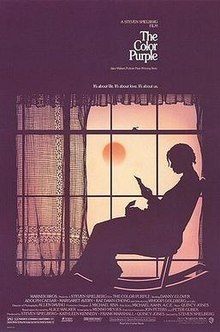 Story of movie The Color Purple 1985 Film :
Story of movie The Color Purple 1985 Film :
